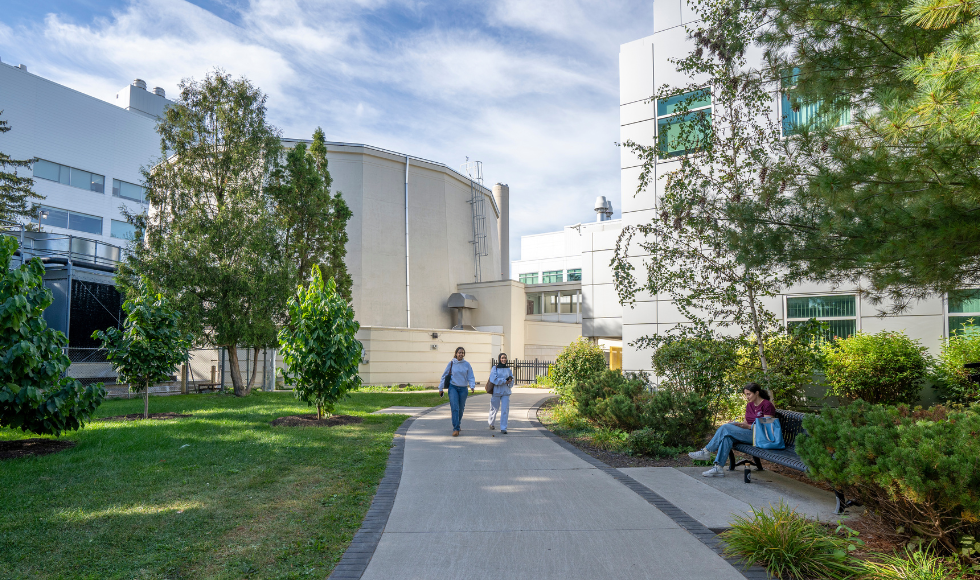McMaster Nuclear Reactor secures 20-year licence renewal for continued innovation

The McMaster Nuclear Reactor (MNR) has been granted a 20-year operating licence by the Canadian Nuclear Safety Commission – a testament to MNR’s long and safe history of nuclear research and innovation.
June 19, 2024
The McMaster Nuclear Reactor (MNR) has been relicensed for 20 years — a historic milestone for Canada’s most-powerful nuclear research reactor.
The renewed operating licence was granted last week by the Canadian Nuclear Safety Commission (CNSC), Canada’s nuclear materials regulator. It is the longest duration licence issued to MNR in the reactor’s history.
The renewal will ensure the reactor can continue to support ground-breaking research in health, clean energy and materials, says Dave Tucker, McMaster’s chief nuclear officer and associate vice-president, nuclear.
“For 65 years, the McMaster Nuclear Reactor has been a pivotal resource for research on clean energy, health and medicine, materials science and much more,” Tucker says.
“We’re grateful to the CNSC for granting this license renewal, which speaks volumes to MNR’s excellence in safety culture and continued contributions to scientific discovery on a national and global scale.”
Nuclear industry leaders from around the world submitted letters of support for the licence renewal, highlighting the central role MNR has played over six decades to facilitate and advance cutting-edge nuclear research, medical isotope production and hands-on learning opportunities for students across the disciplines.
Built in 1959, the McMaster Nuclear Reactor was the first university-based nuclear reactor in the Commonwealth. MNR is one of the world’s leading suppliers of iodine-125, a medical isotope used to treat prostate and other cancers.
The reactor also partners with industry and academia on a range of research activities. Researchers and reactor staff use MNR and McMaster’s full suite of nuclear facilities to test engine turbine blades for commercial aircraft; study nuclear power plant components for lifecycle optimization; advance new life-saving radiopharmaceuticals; and even uncover knowledge about historic artifacts.
In 2014, the CNSC granted the McMaster Nuclear Reactor a 10-year licence.
McMaster University also holds Canada’s largest consolidated licence from the CNSC, spanning activities at various research laboratories and nuclear facilities, including those at McMaster Innovation Park (MIP) and the McMaster University Medical Centre (MUMC).
The CNSC conducts regular inspections of MNR to confirm the facility and its staff continue to meet radiation safety requirements.
In March, MNR officially expanded operations to 24 hours a day, five days a week.
The licence renewal will enable continued investment and expansion in the facility to support new medical isotope products, materials science programs and education opportunities, ensuring this unique research asset can play a leading role in Canada’s nuclear future, Tucker says.
“Over 4,000 visitors toured the reactor in the past year alone,” he notes. “This renewal will ensure the facility is available to future generations of nuclear leaders and visitors from Canada and around the world who are interested in exploring how nuclear science can support a cleaner, healthier future.”
“We’d like to thank everyone who played a role in the licence renewal process. Your hard work and testaments to the McMaster Nuclear Reactor have helped secure this facility for another 20 years of innovation and impact.”


